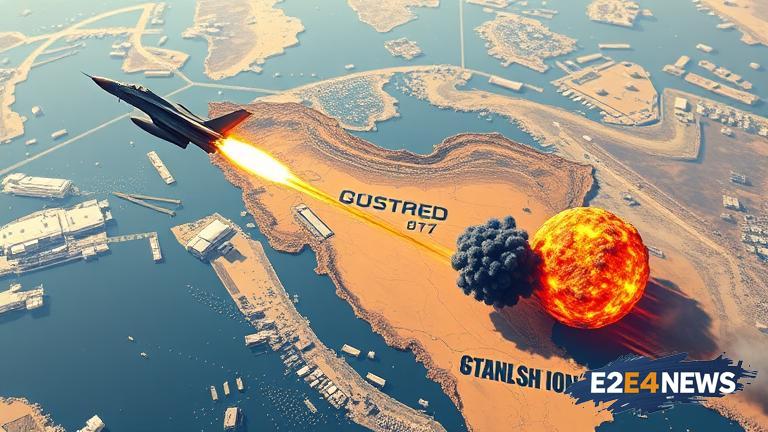The recent escalation of tensions between Israel and Iran has led to a significant development, with Israel launching a series of airstrikes on Iranian nuclear sites. The Israeli Defense Minister has confirmed the attacks, stating that they are part of a larger operation known as Operation Rising Lion. The operation is aimed at targeting Iran’s nuclear capabilities, with the goal of preventing the country from developing nuclear weapons. The airstrikes are believed to have been carried out by the Israeli Air Force, with the support of other branches of the military. The Iranian government has condemned the attacks, calling them a ‘terrorist act’ and vowing to retaliate. The international community is watching the situation closely, with many countries expressing concern about the potential for further escalation. The United States has stated that it supports Israel’s right to defend itself, while also calling for restraint. The European Union has urged both sides to avoid further violence and to return to diplomatic negotiations. The situation is complex, with multiple factors at play, including the ongoing conflict between Israel and Palestine, as well as the broader regional dynamics. The Iranian nuclear program has been a major point of contention for many years, with Israel and other countries expressing concerns about the potential for Iran to develop nuclear weapons. The International Atomic Energy Agency (IAEA) has been monitoring Iran’s nuclear activities, and has reported that the country has been making progress in its nuclear program. Despite the challenges, there are still hopes for a diplomatic resolution to the crisis, with many countries calling for a return to negotiations. The Israeli government has stated that it is willing to negotiate with Iran, but only if the country agrees to halt its nuclear program. The Iranian government has refused to do so, stating that its nuclear program is for peaceful purposes only. The situation remains volatile, with the potential for further violence and escalation. The international community is urging both sides to exercise restraint and to seek a diplomatic solution to the crisis. In related news, Pete Hegseth, a well-known media personality, has joked that the media is having trouble understanding the situation, stating that they ‘can’t wrap their heads around’ the fact that Israel has launched airstrikes on Iranian nuclear sites. Hegseth’s comments have sparked controversy, with some accusing him of being insensitive to the situation. However, others have defended his right to free speech, stating that he is simply expressing his opinion. The situation is ongoing, with developments expected in the coming days and weeks. The world is watching as the crisis unfolds, with many hoping for a peaceful resolution. The Israeli government has stated that it will continue to take action to protect its citizens and interests, while the Iranian government has vowed to retaliate against any further attacks. The international community is urging both sides to seek a diplomatic solution, and to avoid further violence. The situation is complex and multifaceted, with many different factors at play. The Israeli-Palestinian conflict, the Iranian nuclear program, and the broader regional dynamics are all contributing to the tensions. The world is holding its breath as the situation unfolds, with many hoping for a peaceful resolution to the crisis. The Israeli government has stated that it is committed to protecting its citizens and interests, while the Iranian government has vowed to defend its sovereignty and territorial integrity. The situation remains volatile, with the potential for further violence and escalation. The international community is urging both sides to exercise restraint and to seek a diplomatic solution to the crisis.




